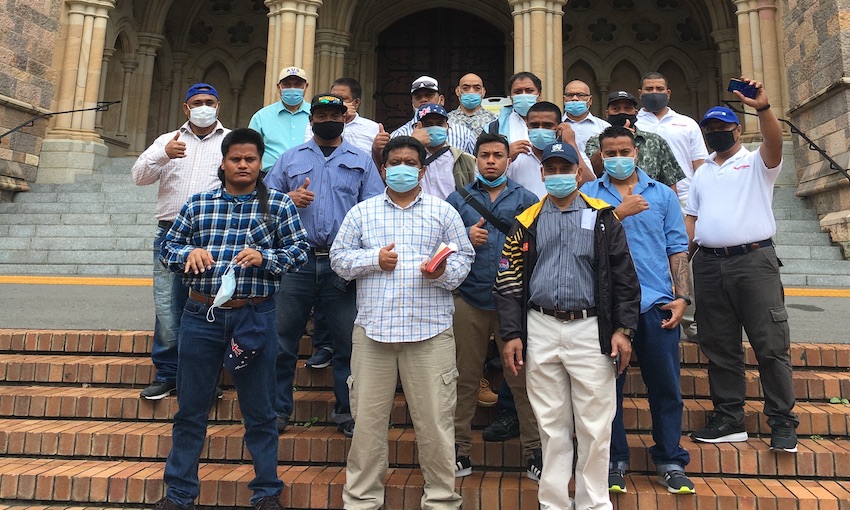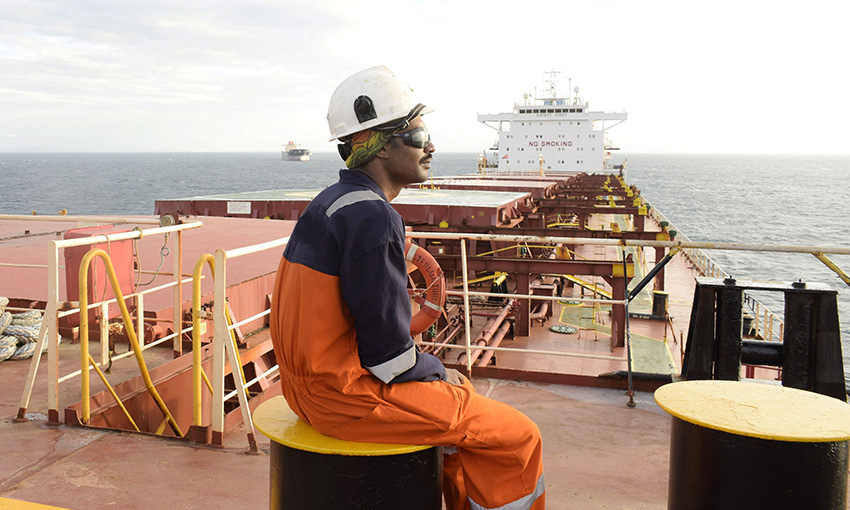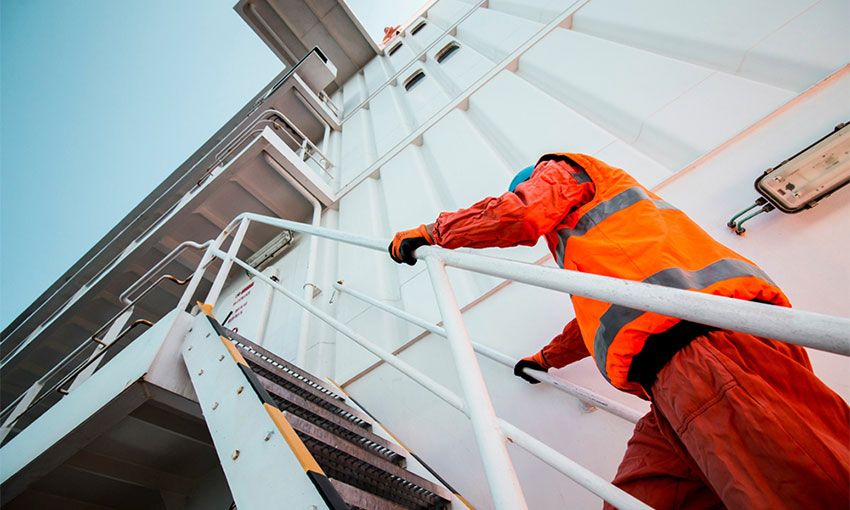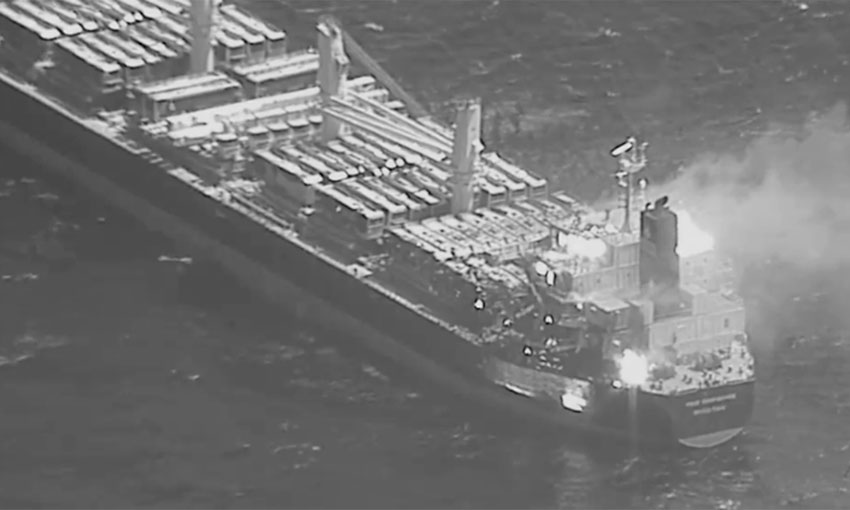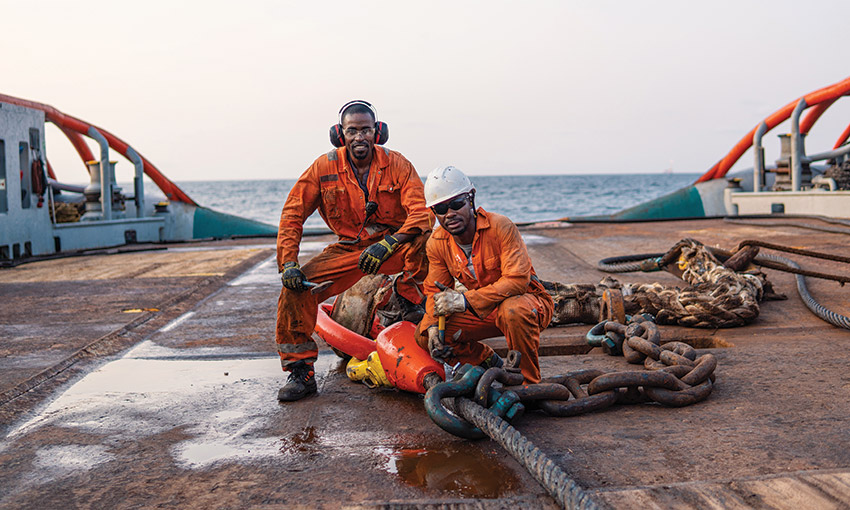A GLOBALLY dispersed community of seafarers from Kiribati are at the epicentre of an arduous struggle for repatriation following their displacement during the crew change crisis.
Non-profit group Human Rights at Sea has published a case review addressing their future in the global shipping industry following peer review.
Central to the dilemma is the termination of an agreement between a consortium of shipping companies and the Kiribati government, which has long facilitated the training and recruitment of I-Kiribati seafarers.
To understand the complex nature of the situation and the direct impact on the individuals involved, HRAS has collaborated with Mission to Seafarers Brisbane, who have been supporting 39 I-Kiribati crewmembers stranded in Australia.
This is in addition to other I-Kiribati seafarers stranded globally and who are being supported by other welfare organisations, including the Hamburg-based Seemannspfarramt der Nordkirche.
The current challenges faced by Kiribati’s maritime workforce are largely a consequence of the international travel restrictions imposed by the global effort to manage the COVID-19 pandemic.
For Kiribati’s seafarers, the effect of the so-called crew change crisis has been amplified by the logistics of traveling to and from the remote Pacific Island nation, and the fact that the country is currently free of COVID cases.
When the few available transit routes to the island were cut off in 2020 as the country’s border closures came into effect, more than 250 I-Kiribati seafarers became stranded internationally, predominantly in Australia, Fiji, Germany, Indonesia, and South Korea.
While shipping companies employing I-Kiribati seafarers have thus far supported the nation’s maritime workforce, the cost and apparent risk of employing them given their challenging circumstances have proved unsustainable.
Shipping company Maersk is among the companies who have made an official decision to freeze the enlistment of I-Kiribati nationals.
As the shipping companies withdraw from their longstanding partnership with the island nation, I-Kiribati seafarers are coming to terms with the potential reality that, when they are eventually repatriated, they may never be employed as seamen again.
I-Kiribati seamen representing the group in Brisbane expressed concerns relating to financial challenges, vaccinations, their futures in the industry, and above all, the welfare of their young families at home.
Group vaccinations are currently underway to prepare for the eventual return home. All crewmembers stranded in Hamburg, Germany; and Nadi, Fiji have been vaccinated, accounting for some 190 seafarers.
In Brisbane, Australia, four individuals have so far been vaccinated, with Mission to Seafarers currently arranging the vaccination of the remaining 35, bringing the total vaccination rate for the displaced crewmembers to around 90%.
HRAS and Mission to Seafarers Brisbane have together outlined three key recommendations to help facilitate the repatriation of I-Kiribati seafarers and secure their futures in the international maritime industry.
Australia and New Zealand should become instrumental in establishing suitable systems and protocols in conjunction with the Kiribati government to manage the safe repatriation of I-Kiribati seafarers.
Australia and New Zealand should establish “green lanes” with the Kiribati government to facilitate alternative employment opportunities in the Pacific agriculture industry.
A COVID-safe travel bubble between the Pacific Islands, Australia and New Zealand should be considered as an alternative to otherwise challenging international crew change systems.
HRAS CEO David Hammond said, “Despite the restrictions of the COVID pandemic in terms of repatriation of I-Kiribati crew, the continuing uncertainty of them being able to return home continues to extend day-on-day directly impinging on their right to family life.”
“Concerns are also being raised to HRAS as to the mental health of some of the seafarers, and the increasing risk of potentially tragic individual outcomes.”
Mission to Seafarers Brisbane said, “The rights of these international workers of the sea, are forever in our minds and hearts.
“They are constantly forgotten, ignored or treated as second class citizens while we continue to live our lives enjoying the benefits of a developed economy,” he said.
“Seafarers constantly live in fear they will be replaced without recourse, they will be treated as illegal aliens or they will be left onboard their ship well beyond their contract term. All of these fears are a reality.
“This current situation is just another human injustice to the forgotten seafarer. We will continue to stand up for the welfare of the seafarers and their families who are in need of our love, care and assistance.”

